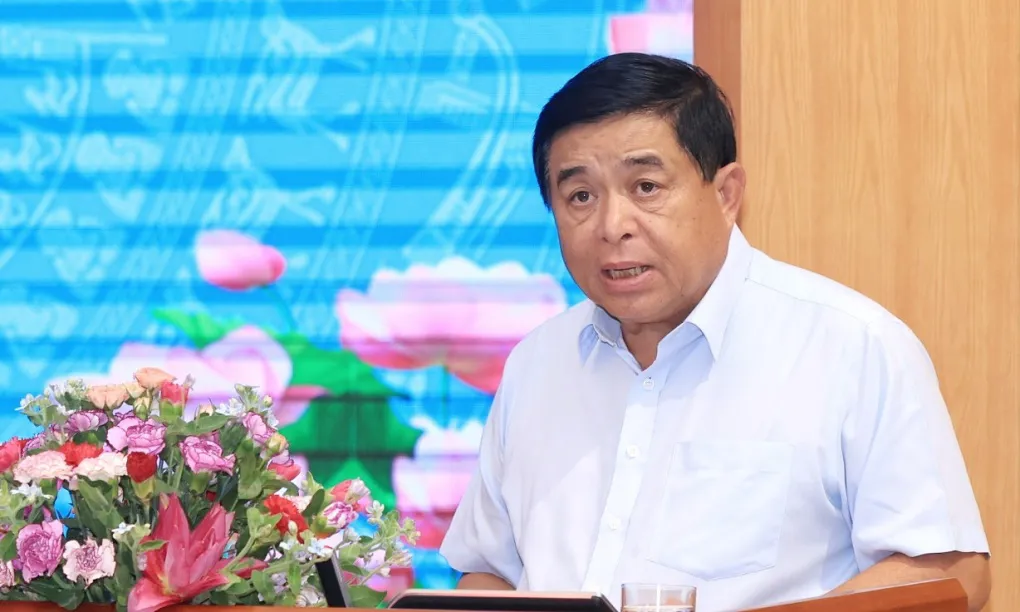Vietnam under pressure to achieve high growth in 2024-2025
The Government's best-case growth scenario for 2024 is 6.5-7%, higher than the goals set by the National Assembly and forecasts by international organizations.
The government faces significant pressure in 2024 and 2025 to achieve high GDP growth and meet the targets of the 2021-2025 five-year plan.
| Minister of Planning and Investment Nguyen Chi Dung. Photo: MPI |
Minister of Planning and Investment Nguyen Chi Dung expressed this view during a six-month review meeting of the agency on July 15.
"Ministries, sectors, and localities, especially leading economic regions, growth engines, and key economic areas, need to make greater efforts to achieve big leaps in GDP growth and contribute to the overall results," said Dung.
In a resolution issued earlier this month, the government set the best-case scenario for GDP growth in 2024 at 6.5-7%. This target is higher than the 6-6.5% goal set by the National Assembly earlier this year and the forecasts by international organizations. For example, the IMF projects Vietnam's growth in 2024 at 5.8%, the World Bank at 5.5%, and the Asian Development Bank at 6%.
Besides the growth pressures, Dung noted that macroeconomic management is also challenged by controlling inflation and exchange rates due to external pressures and public expectations.
Additionally, business and production conditions remain difficult; private investment and domestic purchasing power are expanding slowly; production costs are rising. Many businesses and households have had to give up rental spaces in shopping centers and central streets. Moreover, businesses struggle to meet new standards, green standards, and carbon emissions requirements to maintain competitiveness and export orders.
While domestic enterprises face numerous difficulties, one bright spot in the first half of the year is Vietnam's sustained appeal to foreign investment.
Total registered FDI capital for six months reached nearly $15.2 billion, up 13.1% compared to the same period in 2023, with newly registered capital increasing by 46.9%. Disbursed FDI capital reached $10.84 billion, up 8.2%, the highest increase compared to the same period in the past five years.
"This will be a driving force for economic growth in 2024 and beyond," according to the Ministry of Planning and Investment (MPI).
However, Dung noted that emerging sectors such as the digital economy, green economy, AI, chips, and semiconductors have not yet shown clear progress and risk falling behind the world and the region. There are still institutional and policy issues to be resolved, with decentralization and authority in some sectors, agencies, and localities facing obstacles.
To support businesses, the ministry will amend regulations that are not practical while the functional units need to focus on increasing public investment disbursement, creating an environment that attracts private investment and foreign direct investment (FDI). The sector will continue to innovate thinking and improve analysis, forecasting, and statistical capabilities to ensure timely and accurate policy advice.
Dung also proposed building a regional and international financial center in Vietnam, an investment support fund, and conducting economic dialogues with strategic partners. This will help Vietnam attract multinational corporations and strategic investors in fields such as chips, semiconductors, and artificial intelligence.












